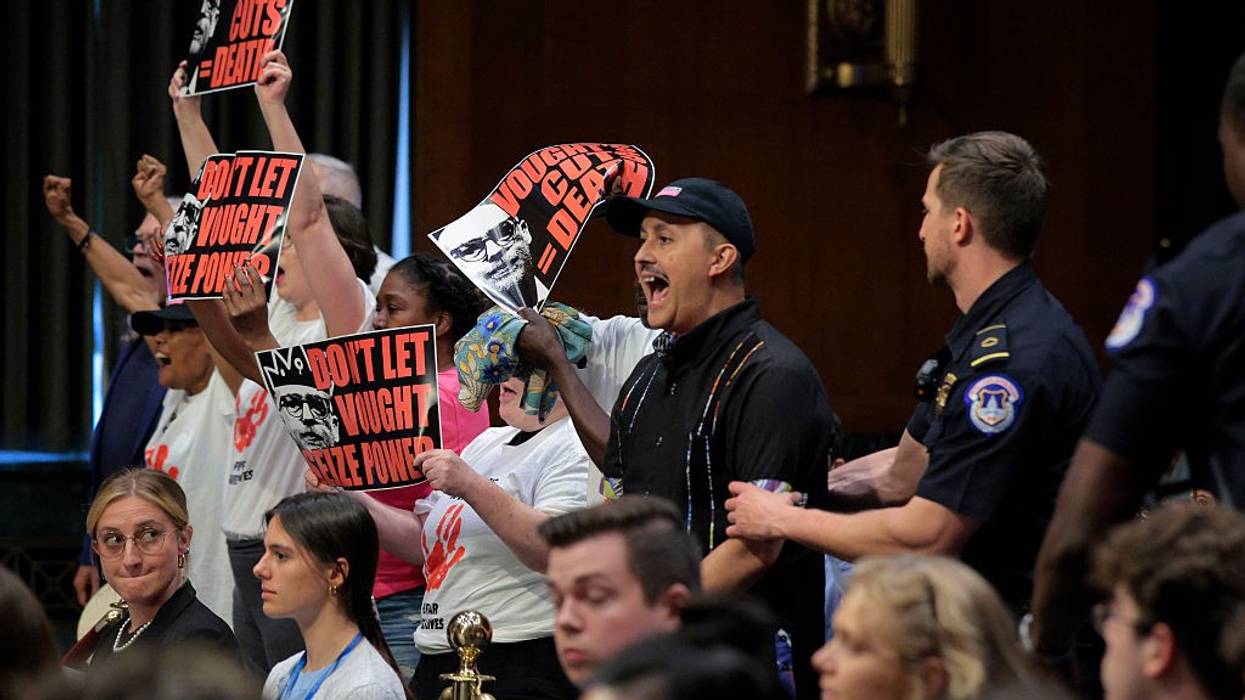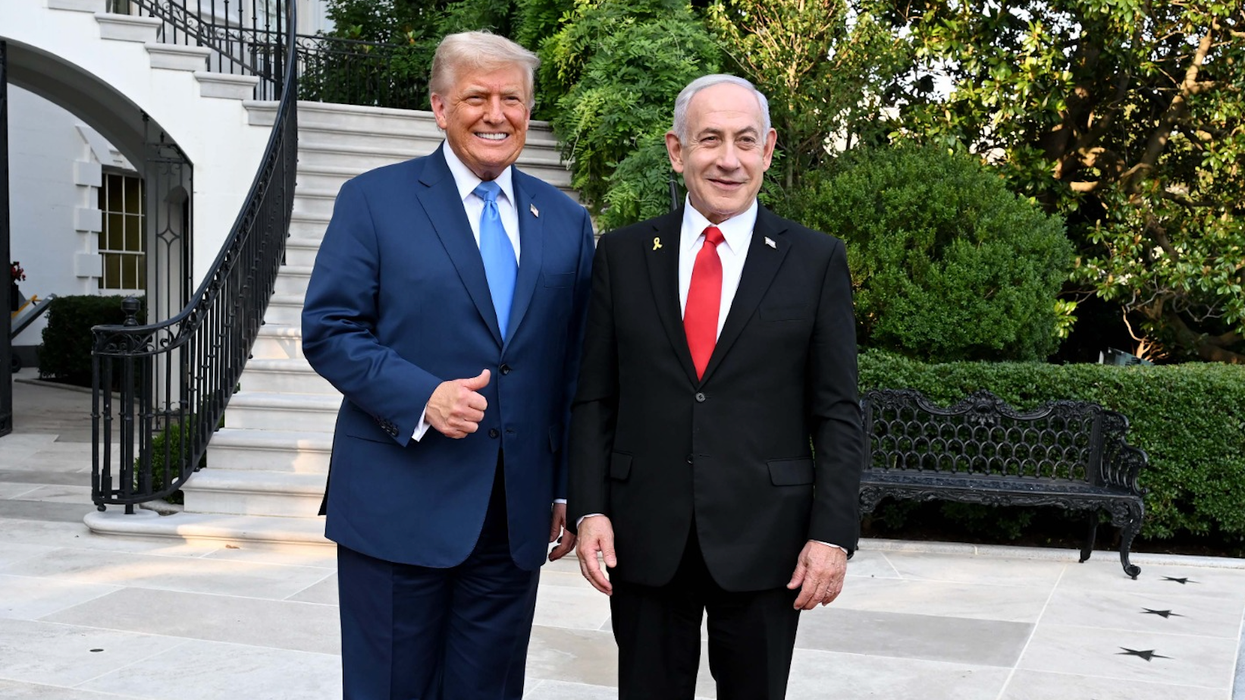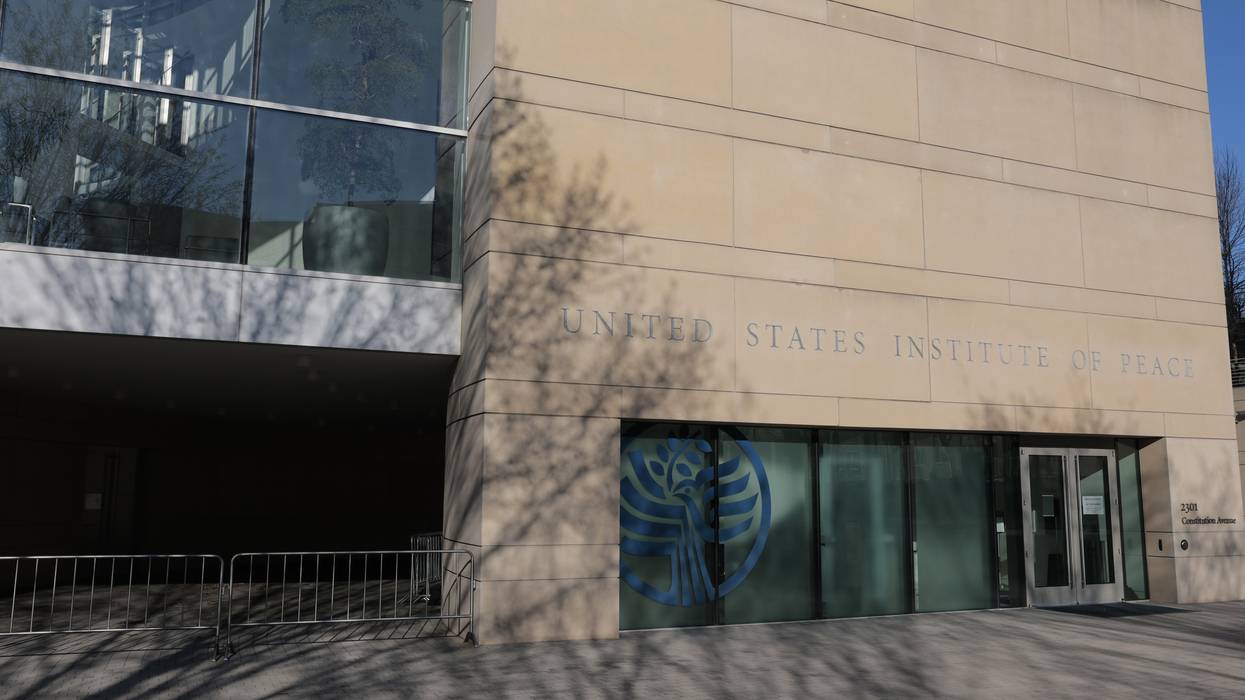Critics Urge Senate to Reject Trump's Deadly Rescission Package, Regardless of AIDS Funding
One humanitarian leader pointed out that the bill contains $1.3 billion in cuts to initiatives "every bit as lifesaving" as the AIDS prevention program that Republicans spared amid public pressure.
Progressives and public health advocates on Tuesday were among those urging U.S. senators to vote against Republican legislation that would let President Donald Trump claw back billions of dollars already appropriated by Congress, even as GOP lawmakers ditched plans to cut funding for an HIV-AIDS prevention program that has saved tens of millions of lives in Africa.
Politico reported that Senate Republicans will remove $400 million in funding cuts to the President's Emergency Plan For AIDS Relief (PEPFAR), an initiative of former President George W. Bush credited with saving more than 25 million lives in Africa since its implementation in 2003.
However, the rescission package—a version of which was passed last month by the House of Representatives—still includes $1.3 billion in cuts to humanitarian aid programs that Jeremy Konyndyk, president of the advocacy group Refugees International, called "every bit as lifesaving as PEPFAR."
These include programs to fund public health, emergency food and shelter assistance, peacekeeping, economic development, and other essential aid that helps stabilize war- and disaster-stricken populations in the Global South.
"Even though the Senate has removed $400 million in PEPFAR funding from the rescissions package, another $500 million in global health funding could still be cut," Think Global Health managing editor Nsikan Akpan noted Tuesday.
Office of Management and Budget Director Russell Vought said Tuesday that the White House has agreed to an exemption for PEPFAR funding via a substitute amendment.
"It's substantially the same package and the Senate has to work its will and we've appreciated the work along the way to get to a place where they've got the votes," he explained.
Jacob Leibenluft and Devin O'Connor, respectively senior adviser and senior fellow at the Washington, D.C.-based Center on Budget and Policy Priorities, noted that in addition to cuts to critical programs, the rescission package, combined with the Trump administration's wider campaign of unlawfully impounding funds, "could also make it far more difficult for Congress to fund the government in a bipartisan way in the future."
As the pair explained:
Most of the funds in the rescission package were enacted in March legislation that was passed by Congress—including on a bipartisan basis in the Senate—and signed into law by the president to fund the government for the rest of fiscal year 2025. To provide the 60 votes required to avoid a Senate filibuster, at least eight Democratic senators needed to join with 52 Republican senators to invoke cloture on the funding bill.
But presidential rescission requests operate under different rules and require only 51 votes to pass the Senate, so no Democratic votes are needed. If the Senate approves the package (which passed the House on a party-line vote), this would show that Republicans could quickly revise on a partisan basis, with merely 51 votes in the Senate, a bipartisan funding agreement reached only a few months earlier that required support from no fewer than 60 senators.
"Senators should keep those consequences in mind as they consider the president's current rescission request," Leibenluft and O'Connor advised.
The consumer advocacy group Public Citizen cited both PEPFAR and the billions of dollars in other cuts to foreign aid contained in the package as reasons to oppose it.
Sen. Bernie Sanders (I-Vt.) took aim at the bill's $1.1 billion in cuts to the Corporation for Public Broadcasting (CPB), which funds PBS and NPR.
"Like all authoritarians, Trump doesn't like criticism or objective reporting. He just wants flattery," the senator said on social media. "That's why he wants to defund NPR and PBS. We need media in this country that is not owned by billionaires and corporate interests. I will vote to support public broadcasting."
The chairs of the Congressional Tri-Caucus—Congressional Asian Pacific American Caucus Chair Grace Meng (D-N.Y.), Congressional Black Caucus Chair Yvette Clarke (D-N.Y.), and Congressional Hispanic Caucus Chair Adriano Espaillat (D-N.Y.)—on Tuesday led a letter urging senators to reject the rescissions bill due to CPB cuts.
"CPB's elimination would decimate public media infrastructure, as the vast majority of its funding goes directly to local stations, many of which rely on it for over half their operating budgets," the lawmakers wrote. "In rural and tribal areas, this would shut down stations that serve as lifelines for public safety, education, and culturally relevant programming. Eighty percent of Native American and Alaska Native communities are rural or remote, and public television is often the only station reaching them consistently."
Polling published Tuesday by Data for Progress revealed that the proposed cuts in the rescission package are deeply unpopular, with a majority of respondents saying that funding for global health programs, public broadcasting, and developmental aid should be maintained at current levels or increased.
NEW: As Senate Republicans approach the Friday deadline to pass Trump’s rescissions package, voters reject the proposed billions of dollars in cuts to global aid and public broadcasting.We find that less than 30% of voters want cuts to these programs.www.dataforprogress.org/datasets/pol...
[image or embed]
— Data for Progress (@dataforprogress.org) July 15, 2025 at 6:54 AM
GOP senators—who are under pressure, as the proposed cuts must be approved by Friday under the Impoundment Control Act (ICA) of 1974, the law they are using to skirt a Democratic filibuster—say they hope to pass the entire package before next month's summer recess.
On Monday, a coalition of 24 states and the District of Columbia sued the Trump administration, alleging it violated the ICA and demanding the release of $6.8 billion in approved education funds that the suit argues have been illegally withheld.
"Courts across the country have made it clear to Donald Trump that he and his administration do not have the authority to unilaterally block funding that Congress has already approved," Democratic Michigan Attorney General Dana Nessel said in a statement. "These education grants are designed to help Michigan students thrive. By freezing them, the Trump White House is not just breaking the law but jeopardizing our kids' future."


